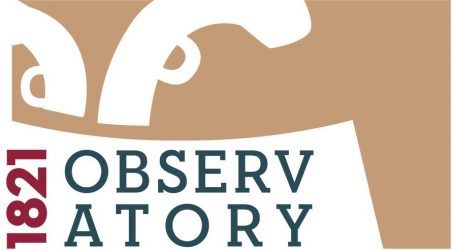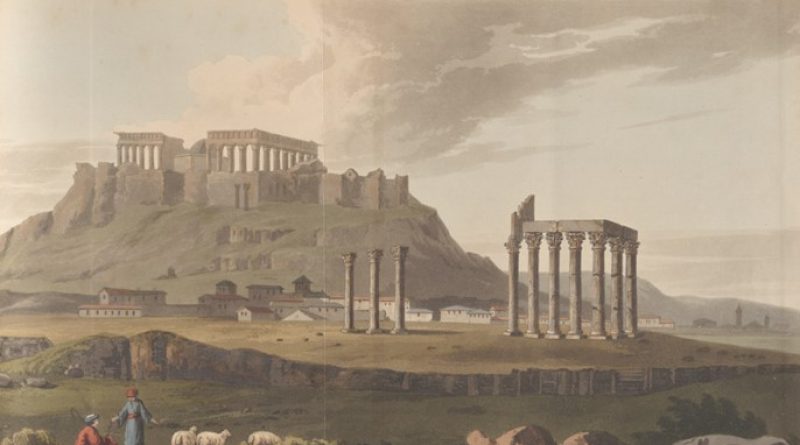Philhellenism and new perspectives (part two): Philhellenism, antiquarianism and national identity
The first part of this article [1] covered some new perspectives of the rhetoric of philhellenism, which were connected to the values of the Enlightenment and the French Revolution, as well as to ancient Greek culture, at least as it was viewed by Western Europeans. In addition, it carried the weight of the comparison of modern Greeks with the idealised image of ancient Greece in the Western European imagination. This second part further analyses the issue of antiquarianism, that is, the intensive engagement of Europeans with Greek antiquity, in terms of the impact it had both on the image of modern Greeks, but mainly on the formation of Greek national identity in the context of the Greek state. After all, as the Hellenist and holder of the Korais Chair at the Centre for Greek Studies of King’s College London, Gonda Van Steen, had hinted in an interview, just the existence of the designation “modern” next to the word Greek demonstrates not only the relationship of dependence but also the underlying comparison with the ancient past.[2] Thus, antiquity is “normalised” at the expense of modern reality.
Yannis Hamilakis, professor of archaeology and modern Greek culture at Brown University, deals with this perspective of antiquarian philhellenism in his new book, co-authored with Rafael Greenberg, entitled Archaeology, Nation, and Race: Confronting the Past, Decolonizing the Future in Greece and Israel.[3] The authors presented the book in an event hosted by the British School at Athens. According to Hamilakis, the preoccupation of Western Europeans with Greek antiquity was distorted through the prism of viewing it as the point of origin of Western civilisation. However, as he emphasises, this version of Greek antiquity, as it emerges from archaeology and classical studies, was placed outside the sociopolitical and geographical context of its time, as a reality of the Eastern Mediterranean. This resulted in the attempt to “whitewash” Greek antiquity by Western scholars, so that it could fulfil its purpose as the “ground zero” of Western civilisation. Of course, an additional consequence was the simultaneous viewing of modern Greeks as barbarians, since, as Western travellers observed, they possessed neither the knowledge nor the appreciation they themselves had of the ancient Greek past. Furthermore, a second consequence was the influence of antiquarianism on the Greeks themselves, who adopted and integrated this “archeologised” attitude into the concept of Greekness.[4] A typical example of this is the language issue in the modern Greek state. The language issue began as a reaction to the comparisons made by foreign scholars between the “superior” ancient Greek language and the “inferior”, due to “barbaric” admixtures, modern spoken language, which reached the point of questioning the “Greekness” of the latter. Thus, the language issue developed into a “battle” that led to the creation of a “cleaner”, archaising form of Greek, katharevousa.[5] In any case, as Hamilakis underlines, this crypto-colonisation, which was manifested through the imposition of Western standards, was limited not only to the issue of the adoption of the “archaeologisation” of the Greek national identity; it also played an important role in the course of the Greek state in general, especially as far as the Great Idea (Megali Idea) is concerned.[6]
Marilisa Mitsou, director of the École des Hautes Études en Sciences Sociales in Paris, analysed the foreign origins of the Great Idea in a talk to the Contemporary Social History Archives (ASKI). Without negating the important contribution of Ioannis Kolettis, who is traditionally regarded as the instigator of the Great Idea, Mitsou demonstrates that the Bavarian court of King Otto, as well as Bavarian scholars such as Friedrich Thiersch, played a decisive role in its formation. More specifically, it seems that the vision of a “reborn” Greece, which would occupy the geographical boundaries of the Byzantine Empire based on Constantinople and whose goal would be both to “enlighten” Asia and to free the enslaved Greeks, was commonly shared between Otto, his father (Ludwig I of Bavaria), the regent Georg Ludwig von Maurer, the Hellenist scholar Thiersch and Kolettis. According to Mitsou, judging by their texts, all of the above envisioned in the same terms both the characteristics and the role that the Greek state would play: it was destined to fulfil the role of the carrier of ancient Greek education and the ideas of the Enlightenment in the “East” while having the Christian character and the geographical limits of the Byzantine Empire. She notes: “a narrative that we consider to be national involves or is involved with foreign elements, borrowings, because ideas have always circulated from country to country, from language to language, with people, books, institutions, objects and, because there have never been national borders that completely exclude one culture from others.”[7] Thus, whether we are talking about a colonial-type, cultural imposition (Hamilakis) or about ideas that circulate freely (Mitsou), the influence of the ideas of philhellenism, and in this particular case of antiquarian philhellenism, was decisive in the formation of Greek national identity.
Konstantina Tortomani,
Postdoc researcher in modern and contemporary European history at the Department of History and Ethnology, Democritus University of Thrace
[1] Philhellenism and new perspectives (part one): Philhellenism, liberalism and the burden of the Enlightenment https://observatory1821.he.duth.gr/en/archives/2389
[2] Efterpi Mitsi and Amy Muse, ed., “Some Thoughts on the Trails and Travails of Hellenism and Orientalism: An Interview with Gonda Van Steen,” in Synthesis: Hellenism Unbound (Fall 2013): 167, https://doi.org/10.12681/syn.17436.
[3] Yannis Hamiliakis and Rafael Greenberg, Archaeology, Nation, and Race: Confronting the Past, Decolonizing the Future in Greece and Israel (Cambridge: Cambridge University Press, 2022).
[4] Yannis Hamiliakis and Rafael Greenberg, “Modernity’s Sacred Ruins: Colonialism, Archaeology, and the National Imagination in Greece and Israel” (talk presented at the British School at Athens, 8 March 2021, https://youtu.be/C0qskcTK2Uw).
[5] Nikolaos A.E. Kalospyros, “The Official Language of the Newly Established Greek State” (talk presented as part of the ASKI lecture series “The Legacies of 1821: Persons and Ideas,” 15 April 2021, https://www.blod.gr/lectures/i-episimi-glossa-tou-neoteyktou-ellinikou-kratous/).
[6] Hamiliakis and Greenberg, “Modernity’s Sacred Ruins.”
[7] Marilisa Mitsou, “The Foreign Origins of the Great Idea” (talk presented as part of the ASKI lecture series “The Legacies of 1821: The Persons and Ideas,” 18 March 2021, https://www.blod.gr/lectures/oi-ksenes-kataboles-tis-megalis-ideas/).

